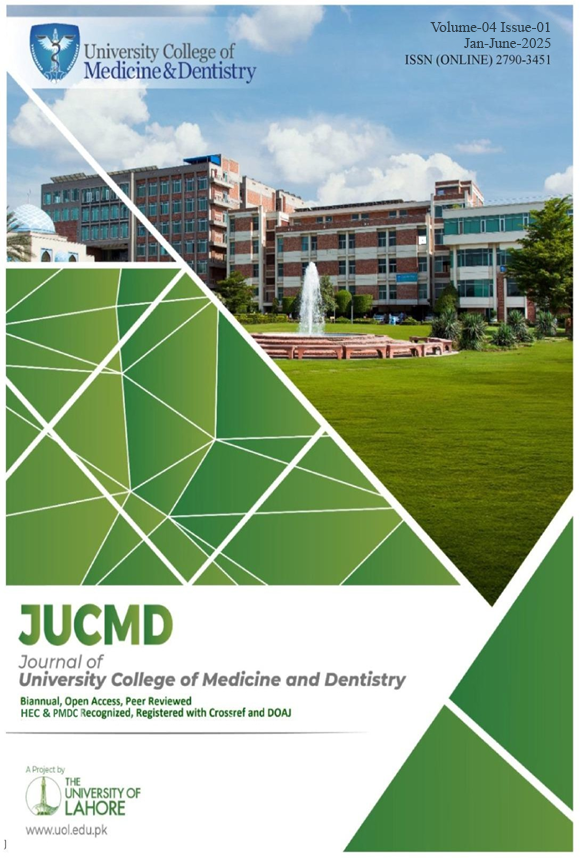Short vs Standard Duration Dual Antiplatelet Therapy after Percutaneous Coronary Intervention with New-Generation Drug-Eluting Stents: A Meta- Analysis
DOI:
https://doi.org/10.51846/jucmd.v4i1.3079Keywords:
Acute coronary syndrome, Coronary artery disease, New generation drug eluting stents, Dual antiplatelet therapyAbstract
Objective: In patients with coronary artery disease, dual antiplatelet therapy (DAPT) is recommended after percutaneous coronary
intervention, but the duration is still debated. This meta-analysis compared short-duration (1 to 3 months) to standard-time (twelve months) double antiplatelet treatment in patients who received coronary intervention with new generation drug eluting Stent.
Methodology: To conduct this examination, we methodically looked at PubMed, Cochrane CENTRAL, Embase, and Web of Science
databases for randomized controlled trials, evaluating varying durations of double antiplatelet treatment following new generation stents implantation from July to September 2023. Seven randomized controlled trials were included with a total of 22,945 patients. The primary efficacy endpoint was the incidence of Major adverse cardiovascular events, such as cardiac mortality, heart attack, stent coagulation, and target vessel revascularization; while the safety endpoint was the incidence major bleeding. Secondary endpoints were major adverse cardiovascular and cerebro-vascular complications, any bleeding, and net adverse cardiovascular incidence for a year after stent implantation.
Results: Short-time DAPT was linked to a significantly less incidence of major bleeding (0.8% vs 1.5%), any bleeding (2.5% vs 4.2%)
and NACE (2.5% vs 4.2%) compared to standard duration of DAPT. No significant variation was noticed among the two groups regarding major adverse cardiovascular events (4.1% vs. 4.2%) and acute cardiovascular and cerebrovascular incidents (4.7% vs. 4.8%). Short-duration DAPT in patients with acute coronary syndrome was linked with decreased risk of bleeding and net adverse cardiovascular events.
Conclusion: Short-duration DAPT significantly lowers bleeding risk and reduces net clinical adverse events without increasing ischemic risk, making it a reasonable choice for people with new-generation drug eluting stents, particularly those with high
bleeding risk or recent surgery.
Downloads
Published
How to Cite
Issue
Section
License
Copyright (c) 2024 Inam Ullah, Muhammad Afaq, Umair Khan, Muhammad Haidar Zaman

This work is licensed under a Creative Commons Attribution 4.0 International License.
Authors retain copyright and grant the journal right of first publication with the work simultaneously licensed under a Creative Commons Attribution 4.0 International License that allows others to share the work with an acknowledgment of the work's authorship and initial publication in this journal.
Authors are able to enter into separate, additional contractual arrangements for the non-exclusive distribution of the journal's published version of the work (e.g., post it to an institutional repository, in a journal or publish it in a book), with an acknowledgment of its initial publication in this journal.
Authors are permitted and encouraged to post their work online (e.g., in institutional repositories or on their website) prior to and during the submission process.







